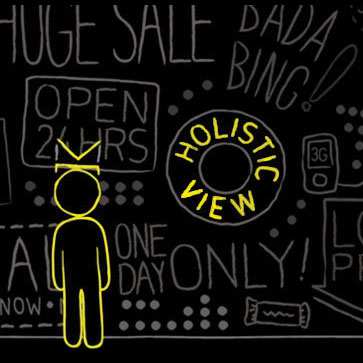90 Percent of Affiliate Marketing is Not Disclosed to Users

by Pete Prestipino
16 Jan, 2023
The Federal Trade Commission requires that whenever you are being paid to post something you make the appropriate disclosure. But that's not happening (to the surprise of few).
New research out from Princeton University has revealed that upwards of 90 percent of affiliate posts on YouTube and Pinterest aren't being disclosed to consumers.
This issue has been going on a very long time in the affilate industry and as new platforms emerge they're prone to experiencing the same problems.
Affiliate links are essentially advertisements and those publishing sponsored URLs (the affiliate) in any manner are required by the FTC to identify when they are being paid. But again, a majority just aren't doing that.
The paper from Princeton analyzed over 500,000 YouTube videos and 2.1 million unique pins on Pinterest. Of those, 0.67 percent, or 3,472 videos on YouTube, and 0.85 percent, or 18,237 pins, contained affiliate links.
The categories most prone to failure in regards to disclosure are "Science & Technology," "How-To & Style," and "Travel & Events" on YouTube, and "Women's Fashion," "Products" and "Hair & Beauty" on Pinterest.
The researchers suggested that social media platforms play a significant role in how affiliate links are presented, and pointed to YouTube's paid endorsements tool and Instagram's recent disclosure feature that displays a "paid partnership" branding on sponsored posts.
"Such disclosure tools are a step in the right direction, however it is unlikely that such blanket disclosures will cover all marketing strategies," the researchers wrote. "Future work could investigate what kind of affordances should be designed into social media platforms to enable affiliates to disclose clearly." The researchers said companies paying content publishers to post sponsored content should also be held accountable for better disclosure practices.
New research out from Princeton University has revealed that upwards of 90 percent of affiliate posts on YouTube and Pinterest aren't being disclosed to consumers.
This issue has been going on a very long time in the affilate industry and as new platforms emerge they're prone to experiencing the same problems.
Affiliate links are essentially advertisements and those publishing sponsored URLs (the affiliate) in any manner are required by the FTC to identify when they are being paid. But again, a majority just aren't doing that.
The paper from Princeton analyzed over 500,000 YouTube videos and 2.1 million unique pins on Pinterest. Of those, 0.67 percent, or 3,472 videos on YouTube, and 0.85 percent, or 18,237 pins, contained affiliate links.
The categories most prone to failure in regards to disclosure are "Science & Technology," "How-To & Style," and "Travel & Events" on YouTube, and "Women's Fashion," "Products" and "Hair & Beauty" on Pinterest.
The researchers suggested that social media platforms play a significant role in how affiliate links are presented, and pointed to YouTube's paid endorsements tool and Instagram's recent disclosure feature that displays a "paid partnership" branding on sponsored posts.
"Such disclosure tools are a step in the right direction, however it is unlikely that such blanket disclosures will cover all marketing strategies," the researchers wrote. "Future work could investigate what kind of affordances should be designed into social media platforms to enable affiliates to disclose clearly." The researchers said companies paying content publishers to post sponsored content should also be held accountable for better disclosure practices.

Pete Prestipino
Digital marketing executive with proven experience in all aspects of search engine optimization (SEO), performance-based advertising, consumer-generated/social media, email marketing, lead generation, Web design, usability, and analytics. - 20-year Internet marketing veteran, currently serving as the Digital Marketing Campaign Manager at Antenna Group (formerly Chicago Digital). - Former Editor-In-Chief of Website Magazine, and a regular speaker on Web technology digital marketing strategy - Author of several books on digital marketing Including Web 360: The Fundamentals of Web Success; Affiliate 360: The Fundamentals of Performance Marketing; Domains 360: The Fundamentals of Buying & Selling Domain Names, and SEO 360: The Fundamentals of Search Engine Optimization.









